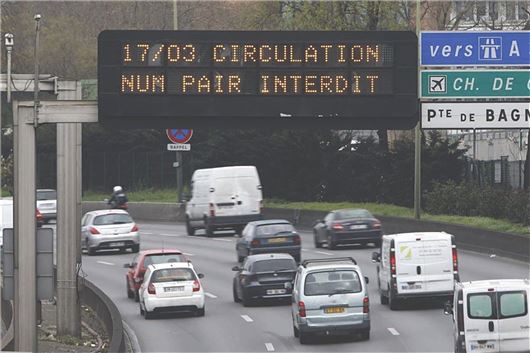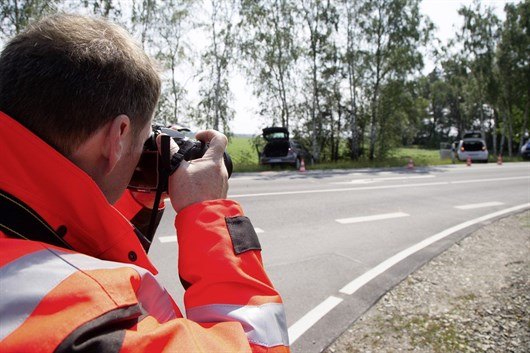What to do if you have an accident abroad

Before you go
You can protect yourself against the risk of receiving less compensation when you have an accident abroad by purchasing additional insurance cover.
It is important that you contact your insurer regarding the need for additional insurance cover for your travel. The insurer will then advise you which additional insurance cover would be best for meeting your your needs.
If you have an accident abroad, the law of the country in which the accident happens applies. Your claim for compensation (property damage and personal injury) may therefore be submitted and handled differently to how it would be in your country of residence.
The time limit to submit your claim may be different from the one in your country of residence. It is therefore important that you submit your claim as soon as possible
If you have an accident in Europe, you can use the system set out in the European Motor Insurance Directive to ensure quick settlement of your claim. This applies to the European Economic Area (the EU member states, Norway, Iceland and Liechtenstein) and Switzerland.
If the insurer falls outside the scope of the Directive, your claim may have to be made directly to the foreign insurer.
If your van is involved in an accident abroad for which the driver is being held responsible, the victim can pursue a claim for injury or damage through the Green Card System.
>> What's an insurance excess?
At the scene
If you have an accident, collect as much information as possible about the other vehicle’s owner, operator and driver.
Fill in the European Accident Statement or an equivalent form from your insurance company. The other party may ask you to fill in a European Accident Statement. It is perfectly safe for you to complete and sign this document, if you keep a duplicate of the document with the other party’s signature.
It is simply a way of ensuring that the parties to an accident exchange the relevant information and, if possible, agree on how the accident occurred.
If you do not have a European Accident Statement or insurance form, ideally write down the following information
- The date, place and country of the accident.
- Name and contact details of the other party (owner/keeper/driver/operator of the other vehicle).
- Name and contact details of the other party's motor third party liability (MTPL) insurer.
- Registration number of the other party's vehicle. If it is a lorry or a tractor towing a (semi-) trailer, note the registration numbers of the towing vehicle and of the trailer, as the registration plates may differ.
- Country of registration of the other party's vehicle.
- Make and type of the other party's vehicle.
- Names and contact details of any witnesses.
- Information (such as address and reference) about the police authorities to which the accident has been reported.
- The circumstances of the accident. If both parties agree on these, it is recommended that both parties sign a statement.
Contact the local police. In some countries the police may only go to the accident scene and compile a report if one of the parties has been injured or if multiple vehicles are involved. You should keep any documentation that the police give you in case you need it to pursue your claim.
If possible, take photographs of the accident scene and the damaged vehicles (including the registration numbers).

When you get home
You can submit your claim in your country of residence, in your own language, to a claims representative of the other party’s motor insurer. Your insurer (motor or legal expenses insurer), may be able to assist you.
To find the representative's contact details, contact the information centre in your country of residence. If you know the name of the insurer, the information centre can provide you with the claims representative’s contact details.
>> What to do if you have an accident in the UK
If not, they will trace the other party’s insurer and its claims representative from the vehicle registration number, make and model of the vehicle and any other details you provide them with.
If the foreign insurer has not appointed a representative in your country of residence, you can send your claim to the national compensation body. This body also intervenes when the other party’s vehicle is uninsured or the insurer could not be identified, if the accident occurred in an EEA country.
Points to remember
The time limit to submit your claim may be different from the one in your country of residence. It is therefore important that you submit your claim as soon as possible.
You may receive a different amount of compensation to that you would receive in your country of residence, because the applicable law of the country of the accident may allow for different types and amounts of compensation.

 Dan Powell
Dan Powell
 VW adds Sportline trim to Transporter range
VW adds Sportline trim to Transporter range
 Mercedes reveals new Marco Polo camper van
Mercedes reveals new Marco Polo camper van
 Ford Ranger revised for 2026 with styling tweaks and new trims
Ford Ranger revised for 2026 with styling tweaks and new trims
 New Renault Trafic for 2026 revealed
New Renault Trafic for 2026 revealed
 Toyota reveals all-new Hilux pick-up
Toyota reveals all-new Hilux pick-up
 Over a quarter of van drivers suffer mental health issues
Over a quarter of van drivers suffer mental health issues
 New Land Rover Defender pick-up revealed
New Land Rover Defender pick-up revealed


